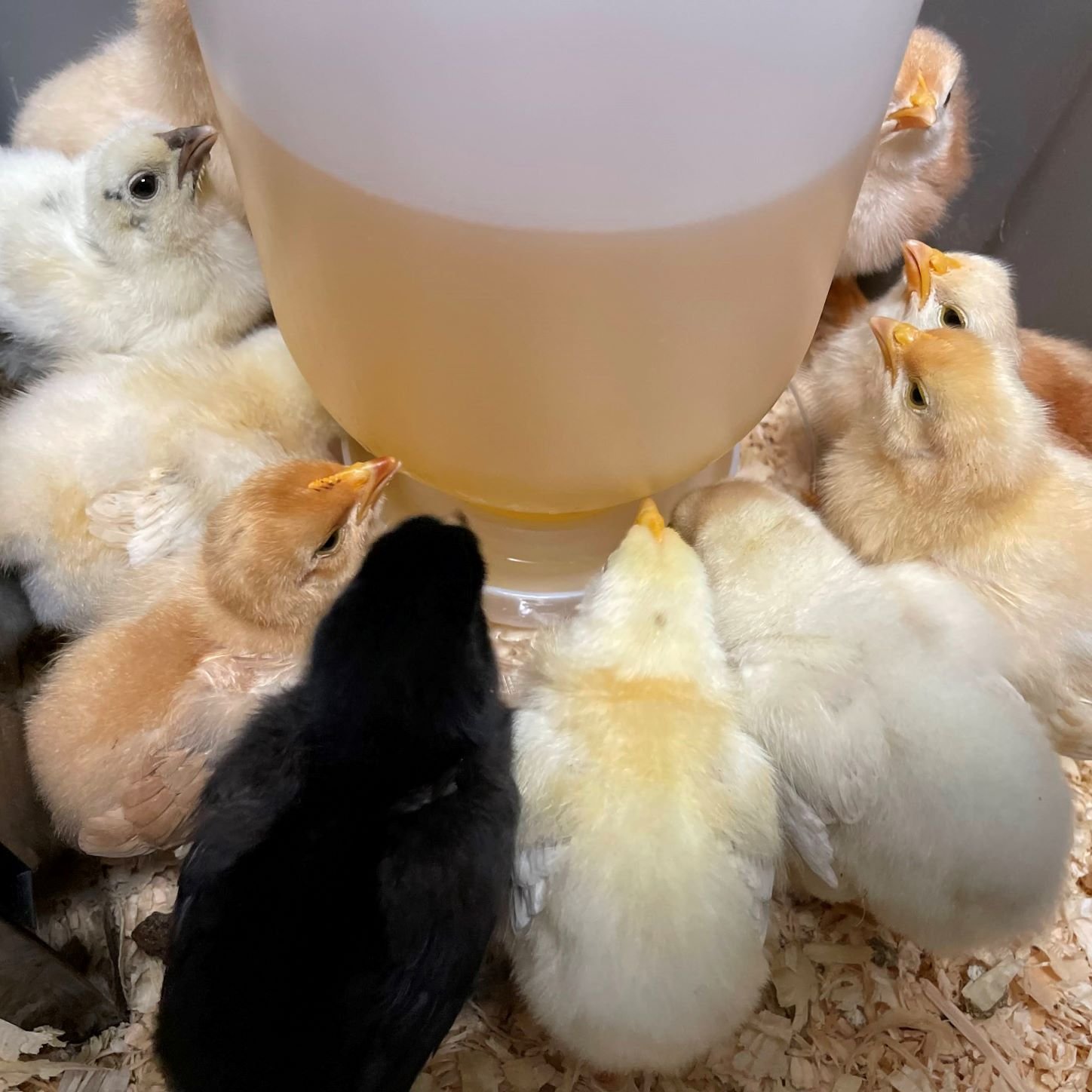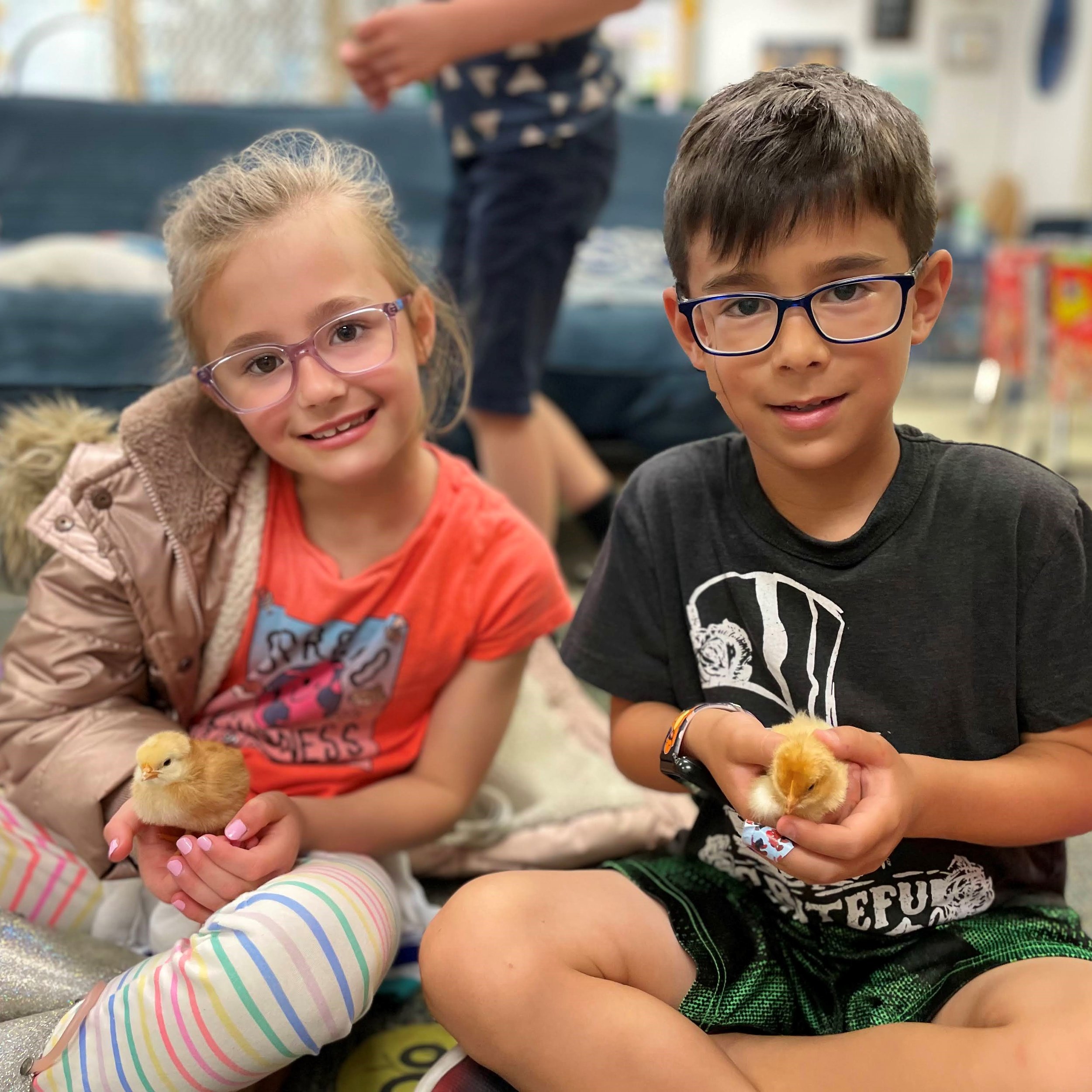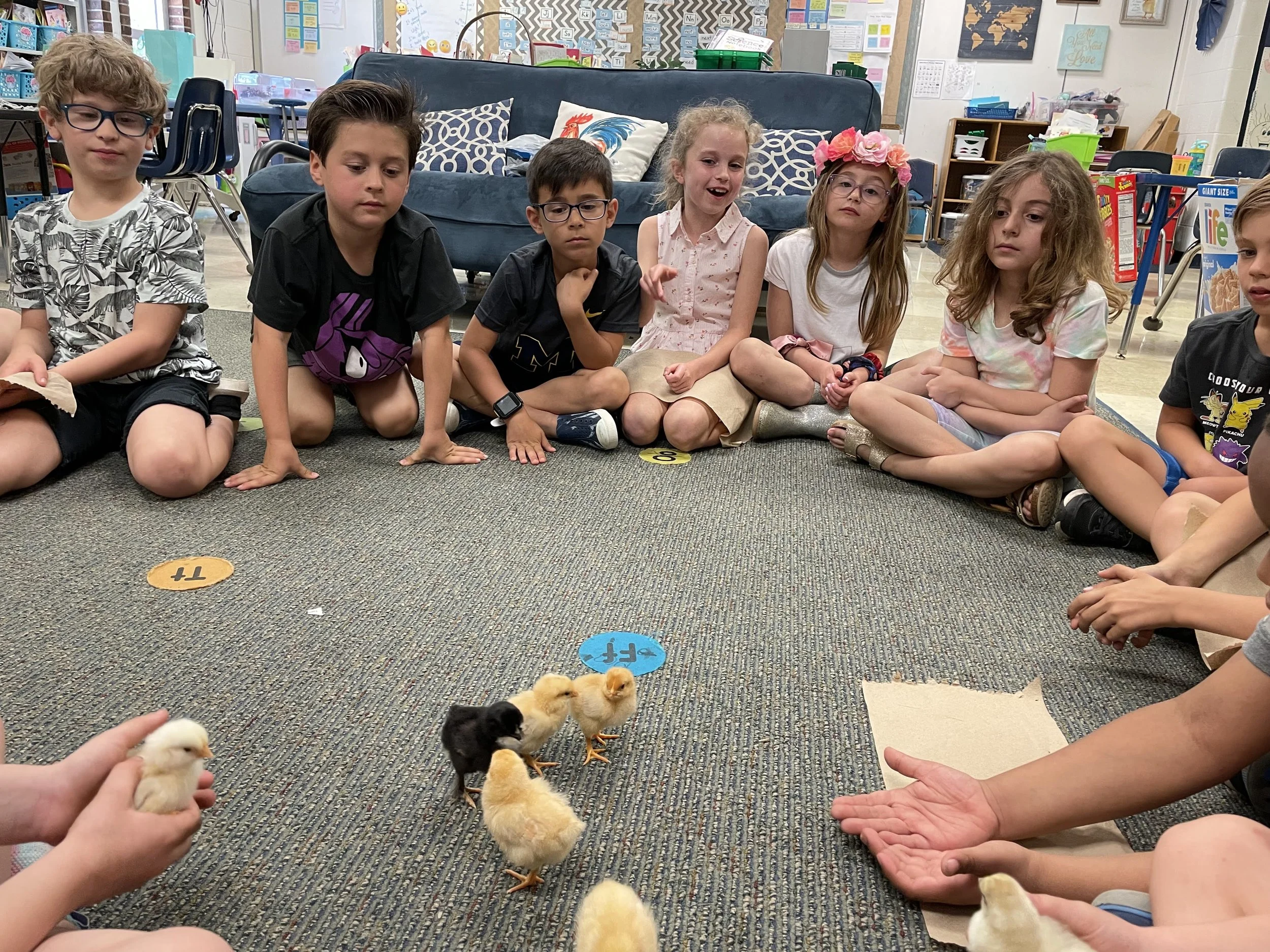Why did the egg go to school?
“That was the best day ever!” We frequently hear these words as elementary students load the buses at the end of a school day spent at Bowers School Farm and Johnson Nature Center. What is it about a day spent outside and immersed in the natural world, local heritage, and agriculture that sparks students to reflect on the day with such a degree of enthusiasm? It stems from providing students with authentic learning environments that connects them to the broader community, core to an approach that values place as a key component of high-quality education. The benefits of place-based education are extensive. They include increased engagement, improved critical thinking skills, and deeper learning for students. The benefits also extend beyond students to include positive impacts on teachers, schools, districts, community partners and organizations, and communities (Marckini-Polk, Jessup, & Whitmore, 2017, pp. 1-2).
An Idea is Hatched
One resulting place-based project idea hatched from the need for chickens for our mobile coop at Bowers Farm. When the pandemic took hold, we were unable to provide school programs for approximately one year. Thus, the Bowers Farm staff pivoted to opening a farm store and kitchen, in addition to creating and offering Open Barn. During Open Barn, the community can visit and enjoy the farm on Fridays and Saturdays. The “Chicken Experience” has become an Open Barn favorite and allows visitors to interact with and learn about poultry. As hens mature, we need to replenish the flock. Aside from education purposes, we sell the eggs the hens lay each day in our Farm Store. First grade is well-suited for chick hatching as the overall experience supports a wide range of their science learning standards, so we set out to work with teachers across the district in a more cohesive effort to bring science (and chickens) to life in a very hands-on way.
Community Connections
Hatching chicks across seventeen classrooms is no small feat! We also wanted to construct a powerful field experience to support and extend classroom learning. This led us to draw in a multitude of people to support the effort. The collaborations that made this experience successful include:
● BHS IT team members provided support with Google Classrooms.
● Bowers Academy students also provided tech support within our Google Classrooms and worked alongside our Farm instructional team during the Animal Investigations field trip program that took place following hatching.
● BHHS Veterinary Science teacher, Jessica Lynn, and students selected the eggs based on breeds that would interact well with humans, were hearty in terms of managing our Michigan seasons, and would meet our egg production needs.
● Bowers Farm students created a plan for housing the chicks upon their arrival to the Farm in collaboration with Carlie Thueme, our Resident Farmer.
● Bowers Academy teacher, Jason Rice, and students joined us for the chick hatching “launches” in the classrooms.
● Visual Arts teachers, Pennie Ellis, Anne Musson, and Sarah Schantz, each worked with students to create egg and poultry art, which included still life photography and collage projects.
From Classroom to Coop
During the field experience, students interacted with chickens at each stage of their life cycle. They went on a wagon ride “Bird Hunt” to identify wild birds and spent time exploring and creating in the forest following an invitation to design bird nests using natural materials. They explored the economics of raising poultry as they washed eggs for the Farm Store and put their design thinking skills to test in our “Bird Design Studio.” They engaged their scientific inquiry skills to observe animal behavior, formulated questions about their observations, and co-constructed knowledge through hands-on experiences.
Your Local Farm
Throughout the pandemic, many have discovered or expressed their gratitude for the Farm and Nature Center as places they can safely visit to find connection, a sense of community, and fun. People have enjoyed exploring the Farm through Open Barn alongside a visit to the Farm Store and Kitchen to purchase fresh produce, ice cream, and more. As a part of the program, we’ve invited students to attend Open Barn with a family member or caregiver with the purpose of touring their families around the farm and sharing their stories and the knowledge they gained during the spring hatching experience. Such opportunities support family engagement with each other and connect them to the local food system. They also position students to be recognized and respected for the strengths they carry as contributing members of the community.
So, “Why did the egg go to school?” The answers are by the dozen! One being, to have the chance to develop into a chick-tastic part of the community! Come visit YOUR local farm to interact with our school chickens, purchase eggs, and enjoy time outside with your friends and family during Open Barn on Fridays from 2:30p-6:00p and Saturdays from 10:00a-4:00p.
References
Marckini-Polk, L, Jessup, P., & Whitmore, M. (2017). The benefits of place-based stewardship
education. Great Lakes Stewardship Initiative. Retrieved from https://greatlakessteward
ship.org/wp-content/uploads/2017/12/BenefitsofPBSE_Final-1.pdf?189db0&189db0













